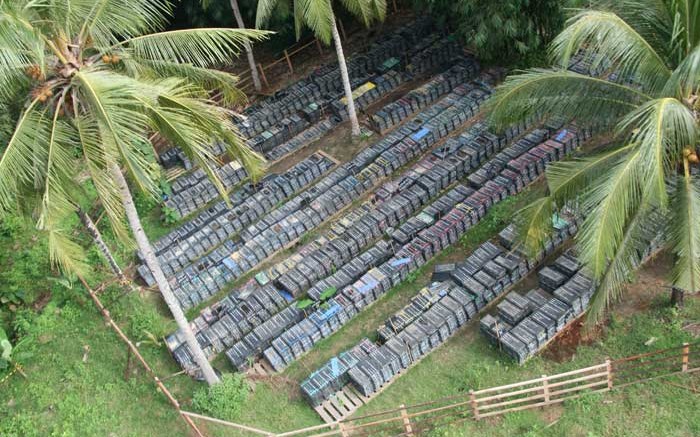Despite hopes by miners in Indonesia that the national government would soften its stance, the government nevertheless plans to push ahead with a full-blown ban of all raw mineral-ore exports starting early next year.
Apparently against the wishes of the minister of energy and mines, the national parliament has backed the plan to stop exporting unprocessed ore starting Jan. 12, and will not offer any exemption to a company with a firm plan to build a smelter.
The news has already impacted the nickel price, as Indonesia is the world’s biggest producer of mined nickel, accounting for 20% of the nickel market. The concern for the government is that most of that ore gets shipped out to China for processing into nickel pig iron.
While the nickel market has been in oversupply for the past few years, largely due to all of the nickel pig-iron production coming out of China, the ban would change the fundamentals underpinning the metal’s pricing.
Just the threat of the ban had Citigroup raising its nickel forecast for next year by 3.8%, arguing that the ban wasn’t properly priced-in by the market. That forecast now looks prescient, with nickel prices climbing 2% to US$13,918 per tonne on the London Metal Exchange at press time — its highest level in almost a month.
The hope that miners with plans to build a smelter would be exempt was quashed, as the parliament said it wants the ban to be implemented “consistently and completely.” The government has received 125 proposals for smelters, of which 28 are under construction.
The country also offers a significant supply of bauxite to the world’s aluminum industry, plus copper, tin, coal and gold.
Exports of nickel and bauxite have been markedly higher this year, as buyers stockpile ahead of the stoppage. The country exported 42 million tonnes of nickel ore in the first 10 months of the year and 42.7 million tonnes of bauxite — both of those figures were higher than exports for all of last year. The country is also the world’s largest tin supplier.
Mining contributes 12% of the country’s gross domestic product. While many forecasters predict the ban will devastate the mining industry in the country, the government argues it will be a wash in the near-term, but longer-term will offer increased revenues from growth in downstream-production facilities.
As for two of the big players in the country — Newmont Mining (NYSE: NEM; TSX: NMC) and Freeport-McMoRan Copper & Gold (NYSE: FCX) — Newmont says it will not be impacted by the ban, but to mitigate some risk, it is entering a deal to have concentrate processed by a local smelter.
As for Freeport and its world-class Grasberg mine — which is the second-biggest copper mine in the world, with 1.1 billion lb. copper and 1 million oz. gold production forecasted for next year — the company says the ban could result in a 30–40% reduction in copper production and layoffs. It smelts its ore in Spain.
On Dec. 6, the day of the ban news, Newmont shares fell 55¢ to $24.50, while Freeport shares were off 3¢ to US$34.25 per share.


Be the first to comment on "Indonesia hangs tough on raw mineral export ban, nickel prices perk up"